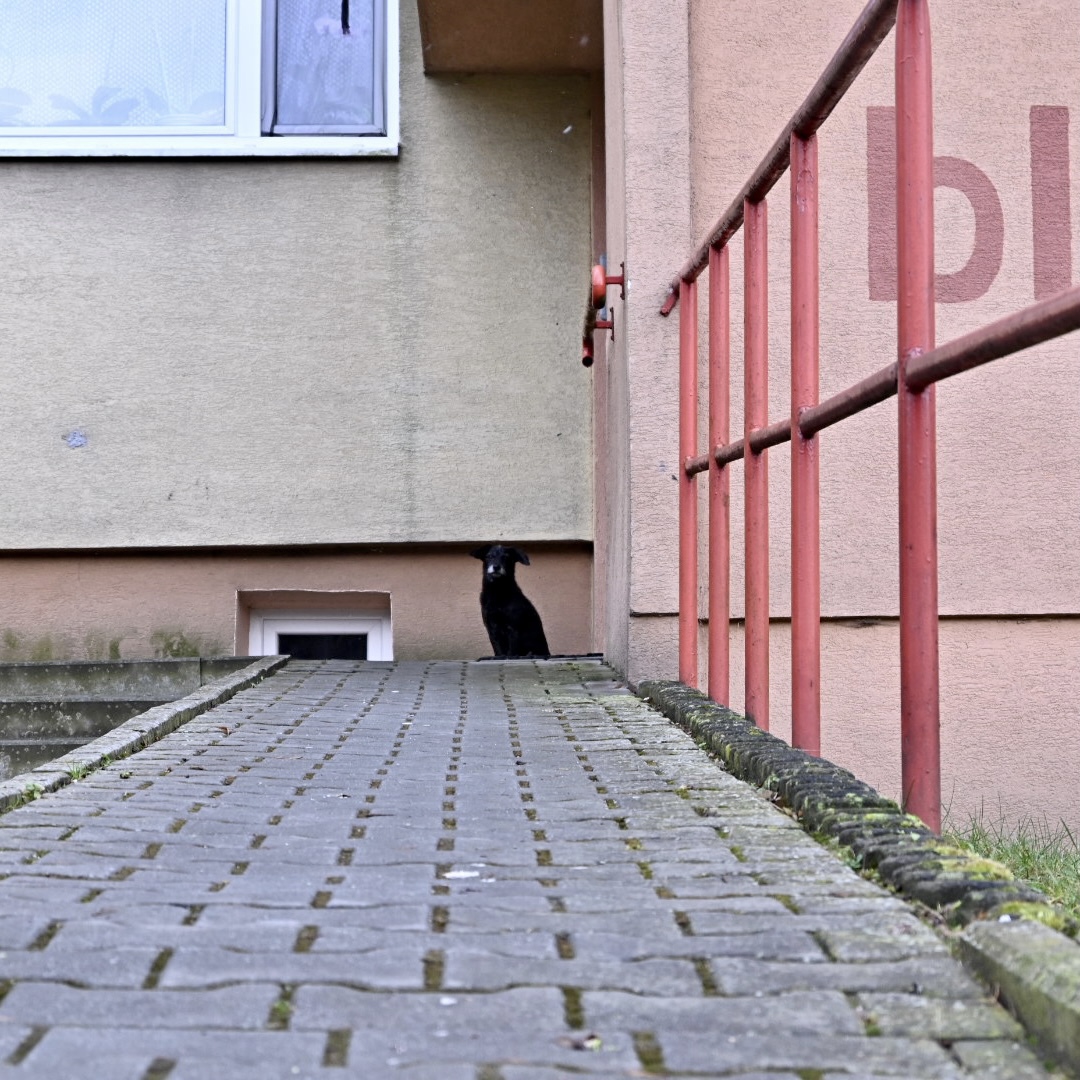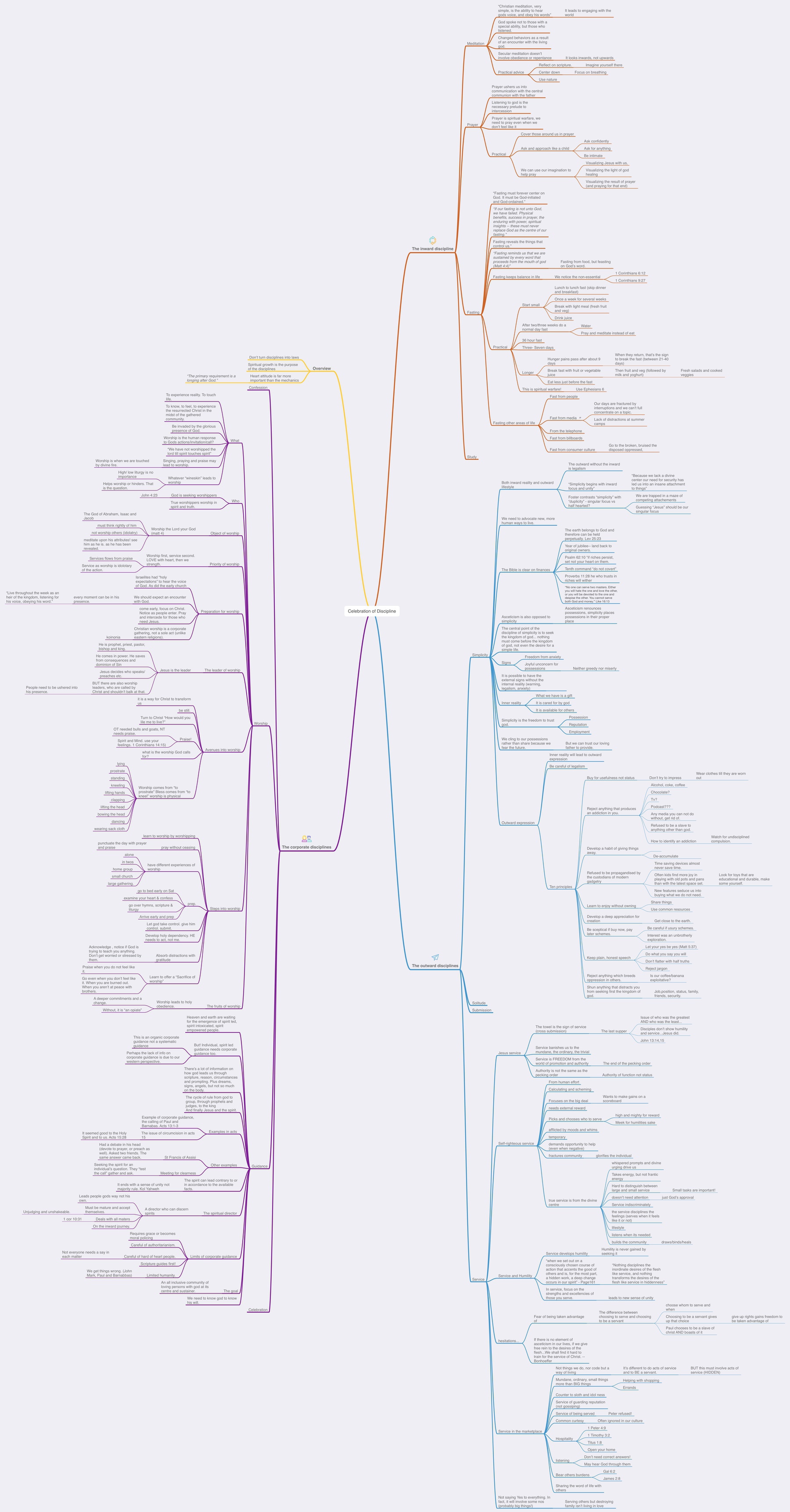Macro
Do I need to interrupt them?
I communicate with my team through a combination of real-time messaging and email. Before I send a message, I try to ask myself “Do I need to interrupt them?”.
I say try because sometimes I forget to reflect on this point (sometimes because I DO need to interrupt them). Most of the time, the answer is “no” or “not now” (I asked my team when they are most productive and I try to guard those hours for them) but sometimes the answer is yes.
Depending on the answer to the question, I can work out if I should
- fire off a quick message
- send an email
- add an item to a task list
- or just wait. I know how annoying it can be to have the over eager colleague who has to share every idea, and I know I can fit that description to a tee. So I try to rein myself in so they can stay fully focused.
Of course, I’ve written this down as I just felt the pull to send a message and then realised, I can and should wait till the end of the day.
That’s at least one success for the day.
A return to time blocking
Back when I was a teacher, I was a huge believer in time blocking: planning your day and marking certain hours for certain activities. It made total sense for me back then. I knew when I’d be in a class, I could estimate my travel times, and setting boundaries on lesson planning helped overcome Parkinson’s law. But after transitioning to work for a corporation in marketing, I had stopped time blocking. At first I had tried to use time blocking principles, but I found the days were too changeable and I’d often have to suddenly drop what I was doing for something else. It didn’t seem to make sense.
Now I’m managing a team, this trend has got worse and yet I’ve decided to return to time blocking.
Why return to time blocking
Although I have less control over interruptions (with more coming from above and below), that is precisely why I need to block certain time for what Cal Newport calls “deep work”. If I am always in reactive mode, with inboxes open for any interruption, then I never really engage with my work properly. And while there is some amount of instability I’ll never be able to prepare for, I can predict certain parts of my week (for example, when I need to review some content before it’s published and when I’m more likely to be messaged). I also need to create some blocked off times and the only way I can do that is by planning. If I hope a time of concentrated, distraction free work time will magically arise, it never will. I have to make it.
Time to begin
So I’m using the daily plan bar in my Leuchttrum bullet journal again. I’m intrigued to see how this experiment goes but I’m hopeful. I know that there will still be interruptions and my plans will never be 100% realized, but I’m confident it will be better than going in blind.
Nikon z50 review
About six months ago I started experimenting with recording and editing some videos as a creative challenge and break from my day to day writing. Although I had made some videos for my Sketchnote courses I hadn't been completely satisfied with the results and wanted to improve their quality. Playing with video has helped me hone my skills and I'm now ready to update my course materials.
I started as anyone should -- using their smartphone -- and made small, cheap improvements in my equipment along the way. Throughout the whole upgrade process, I knew that I would want to spend a bit more at some point on a standalone camera with 4k video capabilities (and some lighting).
It made no sense to buy ANOTHER camera while I already had two so I decided to sell my existing cameras an hunt for a replacement. Although my eye had been drawn to the Sony A7C due Sony's growing reputation for video and stills, as well as the more rangfinder-esq design and flipscreen, I just didn't have the budget for it.
I spent a ton of time considering different compromises and balancing the pros and cons of each option. I was finally pushed over the edge when I saw a Nikon z50 on sales for an exceptional price and decided to make the leap.
The features that mattered to me
The main criteria that prompted my search for a new camera was 4K video. Although I could record 1080p video on my current cameras, I wanted to film in 4k and wanted the flexibility for the future.
Aside from that, I was also interested in getting a larger sensor camera. Having used the micro four thirds range (and a Fuji x100t) for six years or so, I knew that sensor size both didn’t really matter...and really made a difference. Low light performance and depth of field were two important ways.

Admittedly, larger sensors need more expensive lenses so it’s more difficult to get high-quality affordable lenses. After those requirements, every other feature seemed like an optional extra.
What pushed me over the edge
I honestly spent months weighing up different options and considering the pros/cons and rumours regarding upcoming cameras.
I think I "decided" I would buy every major camera at least once (not the Canon R5, I'm not crazy). In the end, I was persuaded by seeing a sale offer that fell within my on hand budget.
Other feature thoughts
Since using it, I've discovered a few other features, benefits and downsides.
Portability
The Z50 and 16-50mm lens is tiny! It is very easy to fit in my camslinger bag along with some accessories (not that I have any yet!) This makes it great to head down to the park and take a few photos of the duckies with my daughter.

That grip!
The ergonomics are FANTASTIC. After a Fuji x100 camera which is a great camera, but doesn't have a great grip, this is a wonderful change. My Olympus E-m1 was probably just about as comfortable, and I do still prefer the front dial on the Olympus, but the Nikon fits my hand better.
The snapbridge app is good
I can download images from my camera to my phone, share my location data, and control it remotely. All great features. The location sharing works much better than my experience with the Olympus app so now my imported photos show up in Apple Photo's map view. Nice. (I hear Sony's is better...probably Canon's too. I don't mind as it's better than what I was using.)

Flip screen fun
The z50 has a screen which can flip below the camera, that makes for some fun selfies and can help with recording video. I did have to grab a smallrig mounting plate to be able to use this with my tripod, but that wasn't the greatest expense ever.
One of the features I heard reviews complain about was the inability to use the touchscreen to change the focus point when you have the camera to your eye. This didn't bother me as I had always used the central focus point, but the Z50 has face and eye detect features so I wanted to play with those. Suddenly, that issue that didn't feel relevant is very relevant to me! Don't get me wrong, using a d-pad is okay, but I agree that the touchscreen would be better.
Strange, but easy controls
Being used to Olympus and Fuji, the controls on the Nikon felt awkward at first...and then second nature. I think it was about a week until they became second nature for me. I would love an extra dial (for ISO?) but I don't mind these controls.
What I wish it had (on paper)
There are certainly a few points where this camera isn't what I wanted (exactly).
- It's only APS-C not full-frame.
- the lens selection for DX Z mount is pathetic. While I can buy the full frame Z mount lenses, they cost more. I can also get an adapter for F mount (my plan).
- The flipscreen doesn't go to the side (This is the most convenient for video)
- It doesn't have IBIS, just lens stabilization. it would be nice to stablize any lens.

Things that I really don't care about
- it's "only" 20 megapixels. But more pixels, more problems (Okay, not for like landscapes which you want to print...but still)
- the lenses attach the "wrong" way. This is true, I don't really care though.
- It has a dumb pop up flash - But that's useful for some situations I guess.
The End?
I'm still not 100% settled with the Nikon z50 but I'm happy enough for now. I have considered that I could probably sell it and make a profit (that helped convince me to buy it).
The more I’ve thought about it, the less sure I am.
I can certainly see some good reasons to go back to Olympus (thanks to the fantastic lenses I still own and the lower prices, smaller lenses I could get.) or I could sell everything and get a new Fuji x100v (a camera series I love, but doesn’t have any zoom lens options).
I don’t know, but for now, I like the Nikon.
Graceful accountability
As Chad Moore and I were discussing SPS, we came up with the term “Graceful accountability”; encouraging each other to do our best, but understanding our circumstances and limits.
I wonder how it applies elsewhere?
Accountability to meet the goals you set and develop yourself with wiggle room and understanding. Providing challenges, but knowing that life has a great way of messing up our plans.
I think it might be a good approach for most things in life.
🔗The Management Myth
“. Notwithstanding the ostentatious use of stopwatches, Taylor’s pig iron case was not a description of some aspect of physical reality—how many tons can a worker lift? It was a prescription—how many tons should a worker lift? The real issue at stake in Mayo’s telephone factory was not factual—how can we best establish a sense of teamwork? It was moral—how much of a worker’s sense of identity and well-being does a business have a right to harness for its purposes?”
A really interesting article that has made me think a lot about the various management issues I’m now facing. I really enjoy the application of philosophy.
🔗Asking, Giving And Blogging – Greg Morris
🔗Asking, Giving And Blogging – Greg Morris
Truth is, I have been trying for a while to make writing and blogging pay like it used to. 6-7 years ago web ads paid ok with a few thousand hits a month and didn’t completely wreck your website and income paid for my hosting and even allowed me to, shock horror, make a little profit.
I can relate to the changes Greg has seen in writing online. I used to run a site that made a nice little amount of money through ads: Enough to pay for hosting and a few tech treats.
But things have changed.
Google ads want to be invasive.
Web design trends have pushed ads out of the way (unless your a big media company and want them all over the place.)
The promised patreon /Kofi/content subscription solution hasn’t lived up to its promises.
We shouldn’t be that suprised. The same issues have been in software with the growth of free with in app purchases and the (justified and not) vocal opposition to software subscriptions.
The issue of subscription fatigue is real.
Many of us would love to support more services and creator, but with so many apps, creators and causes to subscribe to, what was once a small drip from our pockets is now a running tap.
Perhaps creators should seek to create things and ask for payments in exchange for access; it’s the pricing model many wish more apps adopted.
This is certainly the model Seth Godin recommends where he talks about creating experiences. It isn’t easy to monetise anything, but we should pay attention to what we do/don’t pay for.
If we wouldn’t be willing to pay for a newsletter subscription, why would someone pay for ours?
Two responses to problems
I’ve noticed two main responses to any problem at work.
- Blame distribution
- Solution implementation While most people employ both to varying degrees, we also seem to tend towards one or the other.
Blame distribution is where we sell to find the person to be blamed. It’s not about find the responsible party but that may happen as a lucky consequence.
During blame distribution, you should expect to see email chains resurfaced with sections highlighted or underlined. People will point out how they “did their job” (usually to the letter) or that this issue didn’t fall under their remit.
Blame distribution can affect managers (who do I need to be upset with) and lower-level staff (how can I make sure I’m not blamed).
Usually, the actual problem remains while no one addresses it.
Solution implementation is all about fixing the problem. It doesn’t matter what (or who) caused it unless that information relates to fixing the issue. After the immediate issue is fixed, there may also be a process of finding out the root cause of the problem to avoid any repetition.
Someone solution implementation involves challenging staff to raise their standards, highlighting manager mistakes, and maybe even disciplinary action, but that’s not the first thing; It comes later.
I hope that I’m more of a solution implementer than a blame distributor but I know that I fall prey to the later too.
That’s not your really challenge.
When someone wants to start a creative project, they usually mispredict what will be their challenges and what they need to focus on.
Several months back I told myself “you think this is your biggest challenge, but it’s actually…” and then my mind filled in the blank (space was actually my challenge.) So I spent time working out how I could have more space and set up equipment faster. Then I started to buy myself some toys. If I’d bought the toys first, I wouldn’t have got far at all.
There's a whole world out there
Sometimes, while I’m on Micro Blog, I get a glimps of a whole world here that I am completely unaware of. Usually it’s from the discovery feed, where I see a post on a topic that I would never normally go searching for, but is interesting regardless. Other times it is from a comment that appears in my feed and I explore the coversation. I’ve heard people discribe different forms of “twitter” (i.e. black twitter, politics twitter, Christian twitter etc) and I wonder how much that applies to Micro Blog? Certainly, the most common trends I’ve noticed are a gravitation towards Apple products and a dislike of mainstream social media (in particular Facebook). But after those two characterists, which aren’t universal, there’s a lot of different here. It’s a great reminder of just how diverse the world is; on Micro blog and everywhere.
Closing the idea - action gap
One of my big challenges at work now is stopping ideas falling through the gaps.
We’ve had a lot of ideas for ways to improve what we do, but sometimes they get forgotten in the day to day running.
So I’m moving to close those gaps. No more “cool idea let’s do it later.” But “okay, what’s next? What does this actually look like? Who is responsible?”
Part of sharing this is to hold myself accountable if we don’t close the gap.
It's good enough for me
I’ve been finishing a little review of my new camera and I had a realisation. As I wrote about the mobile app, which is far greater than my previous camera, I realised that there are other cameras which are supposed to have superior apps. I’m sure they do and I might even like and use those extra function. Still, this camera is an improvement and in the ways I needed. While it may not be the best, it’s good enough for me. I don’t want to dampen my enjoyment by comparing it to the best.
The same is probably true of my mechanical keyboard (an Anne Pro 2 with Kalih white box switches). It’s probably not as good as some of these ridiculously expensive keyboards but it’s also probably good enough for me.
You bar for “Good enough" may be different (especially in different fields) but knowing that mark (and not getting caught up in someone else’s definition) is really important.
My job is to put out fires.
I’ve had this thought for a while that my job is
- Make a plan and start working on it in the morning.
- Spend the whole of the morning finding out that the plan has changed and there are ten new things to do.
- Adapt plan and work on the new most urgent tasks.
- Wake up the next morning and repeat.
It annoyed me that people would continually start fires and then leave me (and the rest of the team) to put them out, but I realised today that we get paid to put those fires out fast and get a new plan in place soon.
Don't repeat the subheadline
A terrible blogging writing mistake (I hold my hand up and admit that I do it all the time) is to restate a subheadline as the first sentence of that section.
Here’s an example Subheading: What’s good about (topic) First sentence: There are many good aspects of (topic) which we should consider.
It’s pointless and waffle.
Let’s get into the heart of the topic or at least provide some extra information.
Again, I do it all the time but that’s part of the value of editing.
One site or two? And which name?!?
For a while I’ve wondered about combining my two sites Sketchnote Classroom and Learn Create Share into one site.
Reasons
- I want to focus on one site, not two.
- There is a lot of overlap between the two. They are both about creativity.
- I share sketchnotes on different topics on LCS so almost all the content is sketchnote based really.
The reason I started LCS was to encourage myself to share more sketchnotes (and content) that weren’t about sketchnoting but other topics. The only issue I have is that Sketchnote classroom is very clearly about sketchnoting and solves a very clear problem for people (using sketchnotes to learn…and learning how to sketchnote) whereas LCS is a lot less well defined (It’s a process… that is good?).
Why does it matter?
I’m getting ready to launch some new stuff (updated courses and something very special) and so I’m wondering if I should merge the two sites. I have thought about merging them into LCS but part of me thinks it is more sensible to merge them into Sketchnote classroom (I have a clearly message and better SEO).
What do you think?
I’d love your thoughts. Which name is better (in your opinion)? OR do you think I should stick with both!
Two pronoun questions
Question about non-binary people who use the pronouns they/them. How do verbs conjugate? They is or they are? I’ve wondered about that for a while but never got around to asking.
Secondary question for Americans. Companies are generally referred to as individuals (Apple is making…) would you say “They (the company) haven’t paid yet.” surely not “It hasn’t paid yet.”?
🔗 Overthinking? Try this iOS Shortcut.
🔗 Overthinking? Try this iOS Shortcut.
As usual, I found myself overthinking this week about small details and not getting much done on the big stuff. It’s been happening too often lately, delaying my newsletter and book projects. But this week, I decided to do something about it. I built a kind of break-glass-in-case-of-emergency shortcut for whenever I’m stuck in a rut and overthinking.
I really like this idea from CJ Chilvers. I think I might steal/adapt.
Re-reading Celebration of Discipline
I finished reading Celebration of Discipline: The Path to Spiritual Growth last night. It’s my third time reading it and this time I took a year and a half to slowly go through.
My intention was to apply each chapter one at time. I don’t think I really succeeded in every chapter but I certainly went through it more actively this time.
My mindmap notes

Parabloa ideas
A parabola idea is an idea who has gained a second meaning. While the person who coined the term or expression may have had one thing in mind, other people now have a completely different association with it. Here are a few examples
1. Inbox Zero
In it’s original context it was about not feeling like you have to keep checking your email. Instead you bulk checked and processed your email. But now most people use it to refer to the literal state of having no emails in their inbox, even if they have their email app open all the time to do so (and so not applying inbox zero).
2 Virtue signaling
Originally a term to about actions that help show and build allegiance to a group by exhibiting certain moral behaviors Now a pejorative term used to criticize anyone showing “leftist” ideology or caring for other people.
3. Morning pages
Originally an idea from Julie Cameron of writing, by hand, three pages of stream of consciousness that should be discarded. This was to get the creative juices flowing and remove any inhibitors. Now it means doing some form of journaling or writing in the morning. This could be a highly structured one-line long day plan or an article for a website.
4. Thanks, Obama
Originally to sarcastically criticize then President Obama for consequences (real or perceived of his presidency. Now, a way to mock conservatives who blame president Obama for almost anything. If something bad happen, say “Thanks, Obama.”
5. Fake news
Originally, the creation of false and often completely made up news stories by unknown and foreign news sources without journalistic integrity for multiple purposes. 1) foreign agents trying destabilize a country. 2) For political opponents seeking to smear and discredit opponents. 3) for advertising revenue from views. Now it means negative news stories of Donald Trump whether they are accurate or not.
Can you think of any others?
Early Thoughts on "Proper" Bullet Journaling.
About three days in to trying to do “proper” bullet journaling. It’s going okay so far. I’m enjoying the analog side of things (but I know it will become a pain at some point. My idea for a solution is to play with different pens).
- I really like the rapid logging system.
- I’m actually using my index pages
- There are moments I want to migrate a task to a specific day (i.e. Monday when X is back at work) but you’re not supposed to prepare days in advanced…so how should you do this?
- I want to look at some month log ideas.
- You could totally do this with a regular Leuchttrum (or Rhodia web notebook) but the reference and three ribbons are nice touches.
- I wonder about making some special bookmarks for specific logs 🤔
- I wonder how this fits into my big picture note taking/task management systems, I wrote some ideas down yesterday but I think it’s still a bit too early to tell.
Minimalism and Physical Books
This topic is something that has been on my mind a lot recently. My wife and I live in a small European flat and our books and analog note taking tools take up the most space after the various paraphernalia our daughter has.
As we’ve been cleaning out recently, I’ve been reevaluating my use of digital and analog tools; one of the frequent debates I return to.
To some people, this will seem like a closed debate
“Books, pens and paper take up more space than a computer, phone or ebook reader. Plus digital notes are backed up in the cloud. Of course analog notes are incompatible with minimalism.
Live with less, man.”
But I think that is a reductive view of minimalism.
What actually is Minimalism?
One of my favorite quotes on minimalism came from Cal Newport when he was discussing his book “Digital Minimalism”. I can’t find the exact original quote but it went something like.
“At the heart of every minimalism movement is a focus on intention.”
In this perspective, more isn’t always bad (but neither is it inherently good). If using “more” matches your goals, then you should use “more”. The real issue is defaulting to more when some or little would be better.
This reflects a similar idea that the minimalist, Joshua Fields Millburn & Ryan Nicodemus, share.
Remove what you don’t get value from, focus on what you do get value from.
Accordingly, the main evaluative question of a minimalist shouldn’t be “How can I show I have less than other people and so ‘win’ the minimalist pissing contest” but rather something akin to “Does this bring me value?” Or perhaps “meaning” instead of value.
Getting practical with paper
While hypotheticals can be useful, they can end up vague due to their need to be all inclusive.
Looking at the practical issue of paper and books again it’s easy to see how more can be bad. Having a lose pile of papers which you never look at again and just get in the way might be annoying for you.
At the same time, more might be good for you. That pile of paper may have a long list of ideas and prompts which you return to when you need inspiration or ideas.
One person’s too much is another person’s enough.
Finding your enough
There are many stages in between and it’s even possible to combine the benefits of analog and digital tools by scanning paper or using styli on a screen.
From that perspective, if you value something, keep it, but don’t keep things that you don’t value but “feel” you should have.
For me, my analog tools and notes fall into my “valuable” list. But for other people, they become clutter and should be removed or digitized (though be careful, books outlast bytes).
Minimalism as an evaluative tool
I really enjoy putting on the “minimalist” hat as a critical perspective on my activities and stuff. As my wife and I have been going through our things and selling items the questions of “Could I get rid of this? How bad would it really be to downsize?” “Do I actually value this?” and “How likely am I to ever use this again.” have been good guides.
In the process, I’ve rediscovered some of my older notebooks and pieces of paper. It’s been a great experience to find an old idea or silly little doodle from a specific moment in time.
But I don’t “live” in minimalism. I don’t constantly look for stuff to remove and focus on owning fewer items.
Although my pens and books take up a significant portion of space in our flat, I don’t view that as Inherently bad. A physical object is a clear reminder of the associated actions or ideas.
- Seeing a book on your bed side table is a reminder to read.
- A pad of paper is a prompt to write.
Most of time, I find these tools match my values. I just wish It was easier to store them.